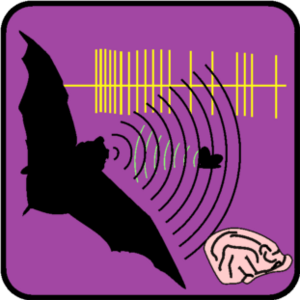Neuroethology facts for kids

Neuroethology is a cool science that studies how animals behave and how their nervous system (brain and nerves) controls those actions. It explores how an animal's brain connects things it senses, like sights, sounds, or smells, to what it does.
For example, many bats and toothed whales have a special ability called echolocation. They use echolocation to find food and to navigate in the dark or murky water. Neuroethologists study their hearing systems to understand how sounds are turned into signals the brain can use.
Neuroethologists are the scientists who work in this field. They try to discover how the nervous system works to create amazing animal behaviors. They often study animals with special natural abilities in their research.
What Does 'Neuroethology' Mean?
The word neuroethology combines ideas from two important fields of science:
- Neurobiology: This is the study of the nervous system, including the brain, spinal cord, and nerves.
- Ethology: This is the study of animal behavior in their natural environments.
So, neuroethology focuses on how the brain controls the natural behaviors of animals. These are behaviors that animals have developed over a long time through natural selection. Examples include finding mates, moving around, or avoiding enemies. Neuroethology usually looks at these real-world actions, rather than behaviors learned in a lab.
See also
 In Spanish: Neuroetología para niños
In Spanish: Neuroetología para niños
 | Jackie Robinson |
 | Jack Johnson |
 | Althea Gibson |
 | Arthur Ashe |
 | Muhammad Ali |

